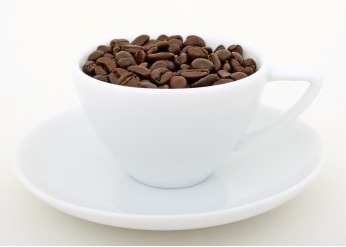A few tips for a rookie to enter the coffee world
When people find that coffee seeds have a special attractive flavor, it is the beginning of coffee. Coffee beans have become one of the most popular drinks in the world from being used as herbs only in East Africa and southern Arabia. coffee beans have also become an economic commodity in the world second only to oil in trading volume.

How does a rookie enter the world of coffee
Uncle Dou, a Beijingman, is a coffee trader. In fact, he is one of the evangelists in the cultural conflict implied by the popularity of coffee in China. Now Uncle Dou, who "can do nothing but coffee", has been engaged in domestic import and export trade for 10 years before he really came into contact with coffee. After that, he settled in Germany for six years, studied and made coffee, and became the only member of the European Fine Coffee Association in China. When he returned to China in 2008, he moved the coffee roaster that had worked in Germany to Beijing.
Uncle Dou's first coffee shop is between Lize Road and the South Square of the West Railway Station in Beijing-an area where few coffee drinkers have been drinking coffee for a long time, largely relying on a stable source of customers within a small circle and word of mouth. The store does not just sell coffee drinks, it has a raw bean display area similar to a coffee warehouse, marking the origin and taste of each kind of beans, as well as several coffee roasters, which is a coffee roaster. His second store is located on the first floor of an office building near ITC, which is separated from the lobby space by a screen, and the storefront is decorated simply. You can see the flow of people lining up at Starbucks nearby from the store.
In fact, there are three main types of coffee shops around the world: coffee shops led by Costa and Starbucks, with desserts and refreshments served. Then there is a restaurant with a slightly larger scale, that is, to add some meals and eat at mealtime. Finally, there is a coffee bakery like Haofang. Different from the first two stores, the process of the coffee roaster is to trace back to the raw material selection of the origin, and then the raw beans are ripened by the roaster on the spot, and finally the finished coffee is made. The energy and cost required is naturally several percent higher than that of a chain coffee shop.
Coffee is different from all other popular drinks. Apart from cultural barriers, its embarrassment in China actually stems from rootlessness, and there is no reference system that can be close to it in the taste system that Chinese people are familiar with. It is true that compared with previous years, the number of coffee lovers has increased step by step, "but coffee is a bitter drink for beginners." So you have to tag it first, and then use the tag to attract people to explore. Even if big international brands want to survive in China, they must make people feel that the coffee is delicious. Many people ask me whether the spring of Chinese coffee has come when hundreds of so-and-so chain stores have been opened. I said NO, when Chinese people think coffee tastes good, they can talk about it again. " Like many practitioners who focus on coffee itself, Uncle Dou wants to promote the concept of "boutique coffee". The Fine Coffee campaign (Specialty-Coffee Movement) originated from a coffee renaissance aimed at returning to coffee itself in regions such as Oslo in northern Europe. After World War II, Americans brought instant coffee to the world in the trenches, when low-quality and low-price coffee flooded the coffee market. "providing high-quality coffee for people who are willing to pay more for high-quality coffee" became the origin of the boutique coffee movement. "some coffee international organizations go to coffee producing areas every year to evaluate high-quality coffee for auction. the evaluation team is composed of internationally renowned coffee tasters, and they also have a very strict and objective coffee evaluation system to ensure the notarization of the results. these evaluation results will directly affect the auction price. Coffee from Colombia's HUILA region has won the championship several times. " Uncle Dou said. "what does boutique coffee mean to the general audience? In a word: let coffee lovers find high-quality coffee at as fair a price as possible. " The rise of the boutique coffee movement has also led to a reverse trend in some of the coffee world. Originally simple consumers joined the process of coffee production and production, focusing on reviving the coffee atmosphere of the 19th century-selling only freshly roasted coffee beans in bulk, and encouraging coffee lovers to buy unground coffee beans as much as possible. grind it into coffee powder before brewing. "so, the taste of a cup of coffee is good or bad, the raw materials are good or bad, that is, 80% of the raw beans are coffee, and 80% of the remaining 20% are roasted. Finally, it is the craft of the barista." Uncle Dou believes that the revival of coffee means that lovers should recognize and appreciate the taste from coffee bean producing areas and plantations. "this is the richest flavor mixture created by the sun, the land, and human labor."
Whether a cafe can practice the principle of fine coffee is nothing more than whether the owner can select the coffee beans that best reflect the characteristics of the producing area in the vast plantation. To put it bluntly, coffee trade is based on agricultural production, and its dependence on land and climate is very similar to that of wine. "when all the coffee beans are roasted to a fairly close cup-measured shallow roast and tasted in a cup-tested way, you can feel the differences between different producing areas and different tree species." Kenyan coffee beans, for example, have a strong dry taste with berry-flavored acidity; Costa Rican coffee beans have constant acidity and clear balance; and Isabiya snow coffee beans have a very exaggerated floral and citrus flavor.
However, these over-professional tastes are usually two-sided, which will not only make more people fascinated by coffee, but also virtually build professional barriers that scare many people. "the experience that these people have just established has just left the instant team, so I suggest weakening the so-called knowledge and skills." Uncle Dou believes that coffee utensils serve coffee beans, while coffee beans serve human taste, and the order of this relationship is irreversible. First of all, we need to know clearly what kind of coffee we like, and find suitable coffee beans and utensils according to this location. "if the taste is too heavy, then you should choose coffee that is moderately deep-roasted, such as Manning. If you like mellow and low-bitter coffee, then medium-roasted Latin American coffee is suitable, while African coffee is for those who like the sweet and sour taste of fruit. "
This may seem complicated, but one of the direct benefits of the coffee boutique movement is that you can skip the complicated and expensive professional equipment and skillful coffee-making methods, and generously return to the coffee beans themselves, which are not for looking at. You only know its advantages and disadvantages after tasting it. Uncle Dou's view is, "without good coffee beans, even a master coffee maker can't make a good taste." As long as the coffee beans are good, even if the operation is not so fancy, the taste of the coffee is not so bad. " Is there any reason for rookies not to venture into the coffee world?
How to enter the world of coffee
1. Multi-experience
First buy whole unground coffee beans or ground coffee from your local boutique cafe; practice making coffee with proper grinding thickness and brewing; learn to experience the rich taste and the pleasure it brings to you; try the flavors of various producing areas; and finally find your favorite coffee taste.
two。 To make coffee, the simpler the tools, the better.
Simple appliances that beginners often despise, such as French pressure filter pots and motor filter pots, are regarded by Chinese as low-level tools without any technical content, but it is these appliances that are widely used in thousands of foreign households. An electric filter can make a liter of coffee at a time, and then put it in an incubator so that family and friends can drink it. Scandinavians are even simpler, they are used to using pressure pots, and the operation is only one step more than instant solution. Those who seem to be very professional and equipment, in countries with developed coffee culture are often only used to make Espresso, Cappuccino, latte, Herbalife this two or three euros a cup of fancy coffee.
Important Notice :
前街咖啡 FrontStreet Coffee has moved to new addredd:
FrontStreet Coffee Address: 315,Donghua East Road,GuangZhou
Tel:020 38364473
- Prev

French coffee culture
I have heard that France once drank less coffee because of the shortage of coffee, and immediately saw more people napping. It may seem an exaggeration, but it is true that the French love coffee. When the Gulf War broke out in 1991, France was also one of the participating countries. Some people in China worried that the war would affect the supply of daily necessities and rushed to supermarkets to buy them. Even the TV station was shocked when the camera
- Next

Explain the history of decaf coffee
It is said that the birth of decaf can be traced back to more than 100 years, but decaf is more mature in recent decades, decaf is to satisfy those who like the mellow taste of coffee, but also afraid that caffeine will harm their health.
Related
- How did the Salvadoran coffee industry develop in Central America?
- What exactly does the golden cup extraction of coffee mean?
- The Origin of Coffee flower
- [2023 Starbucks World Earth Day] there are more meaningful things besides free Starbucks coffee!
- What kind of coffee is there in Spain? 9 Flavors of Spanish Coffee
- Aromatic African coffee| Kenya's coffee culture and historical production area
- Liberica Coffee Bean knowledge: the characteristics of Liberian Coffee beans of the three original species of Coffee beans
- The origin and formula of Spanish latte introduces the taste characteristics of Bombon coffee in Valencia, Spain.
- How to adjust the solution of over-extracted coffee
- What is the tasting period of coffee beans? What is the period of coffee and beans? How should coffee wake up and raise beans?

